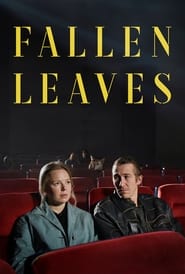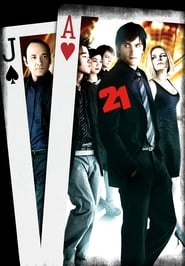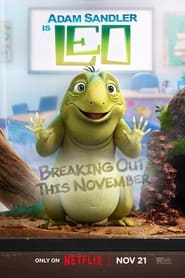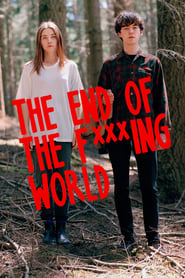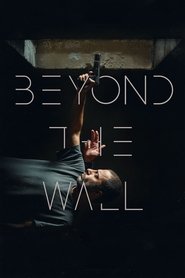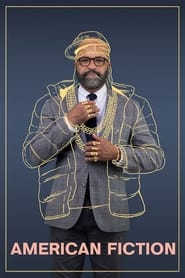|
|
|
UNDO
0
|
|
|
|
|
|
|
|
|
|
|
|
|
updated
|
View the extremely driven high ranking SS commandant of the largest death and slavery camp the German fascists created, at home with his aspirant wife and young family.
A home next to a hell which he not only willingly takes part in but actively creates and she enjoys the spoils.
But can even such gouls live a normal life right next to such an unspeakable hell ? That is a question the director seems to ask.
The psychopathic adults bar one can do so with no problem and we see the kids are learning to.
There are many excellent features to this film namely extreme juxtaposition of country idyll and pounding industrial noise,kids laughter and play with gunshots,barking and distant shouting and screams and a beautiful garden of flowers with hellfire smoke and barbed wire somewhere above the ever-present mid-screen barrier hiding the atrocities.
We see these gouls gossip and laugh and almost find ourselves trying to see some humanity in their everyday household life,some connection,but that is soon lost when their evil reappears in a comment or action.The garden flower scene almost becomes a beautiful respite momentarily until the focus turns to the red flowers only and hits you like a slap with a dramatic pure red screen mirroring the ever present underlying horror that no amount of children's laugher,summer sun or colourful flowers in bloom can veil.
There is a glimpse of humanity in the night vision scene which is done brilliantly and is another noteworthy juxtaposition. The scene of her hurriedly hiding fruit with the ghost like train steam clouds in the background is beautifully composed ( as are many other scenes)and memorably dramatic as the horror of 3000 men, women and children crammed in it hits you.
The brutality is relentless even though none is graphically shown it's there in threats,comments,uniforms,smoke ,gunfire,barking dogs, attitudes, callousness and barbed wire.Seeing this in the movie theater I got a real sense from the open shots showing the skyline, of a huge spawling Hieronymus bosch style hell beyond that wall which dwarfs the SS gouls home and large garden.
This is a subtle psychological study of our humanity like Jonathan Glazer's previous film ,the excellent Under The Skin. A very apt theme in both movies as it is that which we don't see but which dictates all we do see.Another device he uses in both is the hidden camera which provides such natural realism to both movies and his sound folk provide an absolutely perfect fit emotionally,which reminds me of the groundbreaking psychological use of sound in the 1985 Soviet masterpiece Come And See.
I adore originality and psychology in art and Glazer's work provide both in a abundance.
A home next to a hell which he not only willingly takes part in but actively creates and she enjoys the spoils.
But can even such gouls live a normal life right next to such an unspeakable hell ? That is a question the director seems to ask.
The psychopathic adults bar one can do so with no problem and we see the kids are learning to.
There are many excellent features to this film namely extreme juxtaposition of country idyll and pounding industrial noise,kids laughter and play with gunshots,barking and distant shouting and screams and a beautiful garden of flowers with hellfire smoke and barbed wire somewhere above the ever-present mid-screen barrier hiding the atrocities.
We see these gouls gossip and laugh and almost find ourselves trying to see some humanity in their everyday household life,some connection,but that is soon lost when their evil reappears in a comment or action.The garden flower scene almost becomes a beautiful respite momentarily until the focus turns to the red flowers only and hits you like a slap with a dramatic pure red screen mirroring the ever present underlying horror that no amount of children's laugher,summer sun or colourful flowers in bloom can veil.
There is a glimpse of humanity in the night vision scene which is done brilliantly and is another noteworthy juxtaposition. The scene of her hurriedly hiding fruit with the ghost like train steam clouds in the background is beautifully composed ( as are many other scenes)and memorably dramatic as the horror of 3000 men, women and children crammed in it hits you.
The brutality is relentless even though none is graphically shown it's there in threats,comments,uniforms,smoke ,gunfire,barking dogs, attitudes, callousness and barbed wire.Seeing this in the movie theater I got a real sense from the open shots showing the skyline, of a huge spawling Hieronymus bosch style hell beyond that wall which dwarfs the SS gouls home and large garden.
This is a subtle psychological study of our humanity like Jonathan Glazer's previous film ,the excellent Under The Skin. A very apt theme in both movies as it is that which we don't see but which dictates all we do see.Another device he uses in both is the hidden camera which provides such natural realism to both movies and his sound folk provide an absolutely perfect fit emotionally,which reminds me of the groundbreaking psychological use of sound in the 1985 Soviet masterpiece Come And See.
I adore originality and psychology in art and Glazer's work provide both in a abundance.
258 views
|
|
|
|
|
updated
|
Palme D'Or winner and probable Foreign Language Film of the Year 2023/24, catch this while you can. At first, a slow-paced but engrossing dissection of a troubled marriage, then a death in unexplained circumstances, all leading to a riveting courtroom drama. The French legal system - inquisitorial - laid bare like never before! Did you know that in France, if a defendant is not French then real time translation is available to ensure everyone from defendant through to judge, jury and counsel can hear proceedings in their language of choice via a headset? Positively innovative & refreshing.
Anyway, Sandra (Sandra Hullier) is a German national and her French husband Samuel (Samuel Theis) are writers, both intellectual, living with their young visually impaired son Daniel in a chalet high up in the picturesque French Alps near Grenoble. Samuel, poor chap, flits into and out of bouts of depression accentuated by remorse over missed opportunities earlier in life and now by writers' block, Sandra is taking lovers (of both sexes).
One day, Samuel is found dead at the bottom of the chalet with a nasty head wound. Did he fall from an upstairs window, hitting his head on a bunker at the bottom of the chalet or was this something more sinister? Police are dissatisfied with Sandra's explanations and she ends up in the dock. She has an unfortunate tendency not to tell the whole truth which, of course, compromises her. The court must decide was this some form of culpable homicide (even murder), was it suicide or just plain accident?
For the final third of the film we're in court. Terrific courtroom scenes with twists and turns keeping you guessing to the end. Vincent (Swann Arlaud) leads Sandra's defence (he may even be a former lover) and, simply towering above proceedings, L'Avocat General Antoine Reinartz prosecutes with a condescending sneer "they pay me because I'm so good at uncovering the truth".
Director Justine Triet runs a tight ship throughout, her sumptuous outdoors cinematography - with the French Alps in all their splendour - reminds of Anthony Mann in the 1950s
Anyway, Sandra (Sandra Hullier) is a German national and her French husband Samuel (Samuel Theis) are writers, both intellectual, living with their young visually impaired son Daniel in a chalet high up in the picturesque French Alps near Grenoble. Samuel, poor chap, flits into and out of bouts of depression accentuated by remorse over missed opportunities earlier in life and now by writers' block, Sandra is taking lovers (of both sexes).
One day, Samuel is found dead at the bottom of the chalet with a nasty head wound. Did he fall from an upstairs window, hitting his head on a bunker at the bottom of the chalet or was this something more sinister? Police are dissatisfied with Sandra's explanations and she ends up in the dock. She has an unfortunate tendency not to tell the whole truth which, of course, compromises her. The court must decide was this some form of culpable homicide (even murder), was it suicide or just plain accident?
For the final third of the film we're in court. Terrific courtroom scenes with twists and turns keeping you guessing to the end. Vincent (Swann Arlaud) leads Sandra's defence (he may even be a former lover) and, simply towering above proceedings, L'Avocat General Antoine Reinartz prosecutes with a condescending sneer "they pay me because I'm so good at uncovering the truth".
Director Justine Triet runs a tight ship throughout, her sumptuous outdoors cinematography - with the French Alps in all their splendour - reminds of Anthony Mann in the 1950s
316 views
|
|
|
|
|
|
|
|
|
571621571620571232571099570816570516570453569310569306569244
